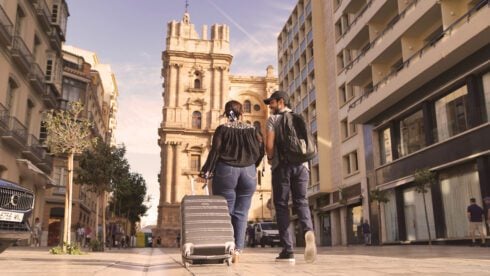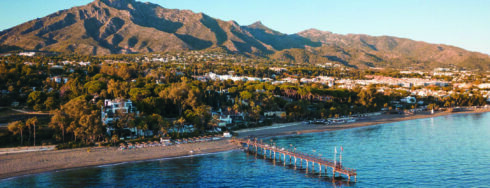THE proposed tourist tax for Andalucia has been slammed by a local hotel group for hitting Andalucians as hard as foreigners.
The Costa del Sol’s leading hotelier association (AEHCOS) warned that holidays in Andalucia could become nearly 5% more expensive if the new tax is introduced.
But far from being a simple fee for foreign tourists, the tax would impact everyone — including Andalucians holidaying within their own region, it claims.
In the province of Malaga alone, local tourists from Andalucia made up over a fifth (21.6%) of all visitors in 2023.

If approved, the tax would raise costs for these travellers by 4.8%, adding a financial burden to local families and – AEHCOS fears – dampening enthusiasm for domestic holidays from Andalucians.
“This is a tax that would impact everyone,” the association president, Jose Luque, said.
“It’s not just foreign tourists who will feel the pinch. Any of us planning a weekend getaway or a short break within Andalucía will be hit by this new cost.
“Even a simple stay in a local hotel, whether for a family holiday or an anniversary celebration, will become more expensive.”
Luque added that it will not deliver any direct benefits to the sector: “We recognise the financial challenges faced by local authorities, but this tax will hit tourism hard, damaging our competitiveness and the wider local economy.”
READ MORE: Spain’s record-breaking tourism boom is being carried by the Balearic Islands
Figures from Turismo y Planificación Costa del Sol reveal that Malaga welcomed 1.7 million Andalucian visitors in 2023, accounting for 56.2% of all Spanish visitors.
The proposed tourist tax would see these local people paying a combined €17.1 million extra for their holiday breaks.
A family of four planning a short holiday over the October bank holiday weekend with two hotel rooms booked at €125 per night for three nights would end up paying an extra €36 due to the tax, according to AEHCOS.
The calculation is based on a charge of €3 per person per night, similar to the model used in the Balearic Islands.
Another criticism is that any revenue raised would simply go into general government coffers, without a specific benefit to the tourism industry.
“These types of taxes don’t have a clear goal, and there’s no guarantee the money will be reinvested into the sector. Ultimately, this will drive up the cost of living and fuel inflation,” Luque said.
The association cited similar cases in the Balearic Islands and Catalonia, where tourist taxes have been implemented.
According to Luque, the funds have been used to cover deficits in public services, rather than being channelled back into the tourism sector as initially promised.
The association also warned that raising prices wouldn’t necessarily result in a better quality of tourist.
“Raising prices won’t bring in ‘quality’ tourism, as some claim. The real draw for visitors is the range of experiences on offer, not the size of their wallets,” the association stated.
The region’s tourist tax has been championed in the Junta by left-wing parties PSOE and Podemos, as a means to generate revenue for local services and infrastructure, particularly in popular tourist destinations.









Biting the hand that feeds you comes to mind.